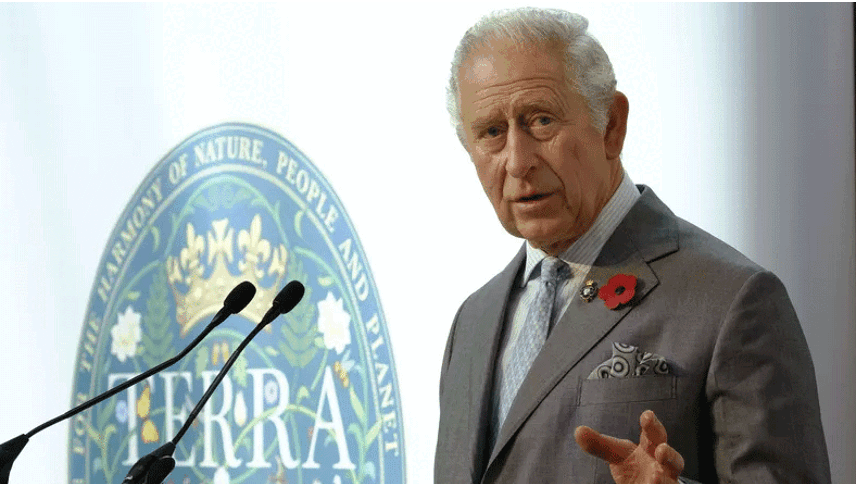Register for free and continue reading
Join our growing army of changemakers and get unlimited access to our premium content

Image: Sustainable Markets Initiative (SMI)
In 1971, aged just 21, the then-Prince of Wales used his first public speech to raise concerns about planetary degradation. While many of the claims were met with skepticism back then, his concerns about river pollution, air pollution and plastic use could be repeated verbatim today with little need for revision.
Since then, King Charles III’s views have remained consistent; he has continued to be a powerful advocate for tackling the challenges our planet is facing. The new monarch has a certified history of promoting better outcomes for our planet, tackling deforestation in the Global South via the successful Prince’s Rainforest Project and launching the Sustainable Markets Initiative (SMI) in 2020.
The SMI’s launch in 2020 aimed to inspire a ‘coordinated global effort to enable the private sector to accelerate the transition to a sustainable future.’ It was a sorely needed intervention, and – bolstered by its subsequent Terra Carta mandate in 2021 – emboldened many of the players in my own sector to commit to more responsible investment practices.
It’s these signals from the top – whether royalty or the Government – that help investors better understand the direction of travel and assess the transition risk of their investments. While the private sector can go quite far in terms of solving environmental, social and other issues, without the right policies and strong support from public institutions, we can’t get to our destination.
This is where the King’s role has been instrumental – he has helped set the pace in the private sector and also set the tone in Government. Having a role model for sustainability of this calibre has helped to mainstream these efforts throughout UK businesses.
Leading by example
In addition, it wasn’t just the King’s campaigning and convening work with businesses that made a mark on sustainability. The green activity that he engages in within his own private life has also resonated throughout society.
One of the best examples of this can be found in the way he has managed Highgrove, his estate in Gloucestershire. The estate adopted regenerative organic farming methods as early as the 1980s, and he was ‘considered completely mad’ for the reed-bed sewage treatment system he installed there all those years ago.
The core environmental issues that the King’s own activity speak to have now become mainstream trends in ESG – soil fertility, biodiversity, and the environmental impact of conventional farming. The King’s interest in these areas was truly ahead of the curve, as these issues now shape substantial capital flows.
Indeed, just this year, we felt the time was right to launch our advocacy paper on nature, and announce our approach to deforestation.
For our nature report, we were delighted to have an opportunity to collaborate with a prominent environmentalist Dr Tony Juniper CBE, who is the Chair of Natural England.
Juniper is also a close friend of King Charles III. In 2010, the two worked together on the King’s book Harmony, in which he expounds his philosophy for Planet Earth. In March this year, they released another project together: Climate Change, a Ladybird book which explains the climate crisis to children.
Juniper is one of the King’s most vocal supporters – he’s previously been quoted saying that the King is possibly the ‘most significant environmental figure of all time’. It’s certainly true that the King has been instrumental in shining a light on new frontiers of the climate crisis, building incredibly powerful advocates among a broad range of decision-makers.
Having done quite a lot to promote efforts in sustainability, in his role as head-of-state King Charles will now be under pressure to remain neutral: we can expect no more public remonstrations of ‘corporate lobbyists’, of the likes we saw in 2013.
However, there is still an important role that the new King can play in the area that he is clearly so passionate about: he has pledged to continue to ‘highlight’ causes, even though leading campaigns directly is now out of reach. This new role is far from insignificant.
Paying attention to the themes that the King chooses to champion may help direct investors towards the latest trends in climate and nature solutions, and channel capital flows into areas that are gaining ground in the ESG debate.
Hopefully, in his role as Head of the Commonwealth, King Charles’ influence will be able to reach even further around the globe – promoting efforts that are truly internationally-minded.
I’ve recently spoken about how new voices that have historically been locked out of decision-making will be the most likely sources of the next wave of green ideas. In his role as a unifying figure for the UK and so many other countries around the world, I trust that the King will fully grasp the opportunity to facilitate greater collaboration across nations. The fight against climate change demands it.
By Maria Nazarova-Doyle, head of responsible investments & stewardship, Scottish Widows



Please login or Register to leave a comment.